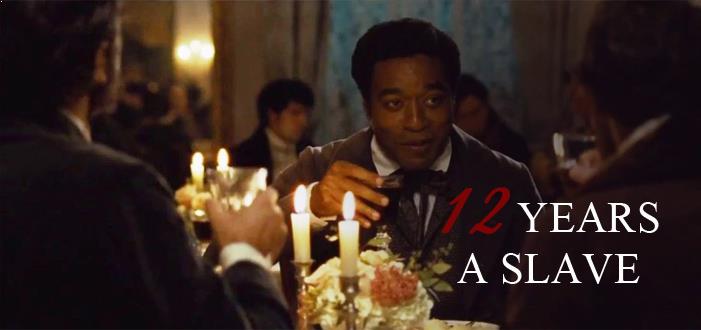
12 years as a slave
What is most immediately striking about 12 Years As a Slave is the night and day contrast of the treatment and approach of Africans between the North and the South. The Yankees seamlessly integrate them into their society, allowing them to prosper at their own talents, benefitting society at large. The Dixies, obviously, view them as more productive domesticated animals; high-functioning livestock if you will.
There is no time for Solomon Northup to contemplate the starkness of being a slave when he was once a freeman. His main concern is trying to survive, but with dignity. Yet because of his Northern upbringing, and therefore lack of conditioning to being a proper slave, he kindles many fires with his slave masters and lackeys, at the risk of losing his own life. Was it worth it though? Were the near lynchings and whip lashes the currency of maintaining his self-esteem? Yes. By maintaining his identity, he never lost his resiliency. Other, weaker, men may have submitted themselves. They may have resigned to the fact they would never be free again. But Solomon was determined to overcome this unexpected tragedy in his life, to return to his peaceful existence in New York.
The film does a masterful job of avoiding dirt cheap pandering that accompanies “white guilt.” It does not seek to preach the vices of the plantation owners and instead seeks to concentrate on the willful determination of a man abducted and put into slavery. Thus, by avoiding such distractions from the soul of the film, we can explore the richness of the Solomon character and his alien temperament that he brings to the south.
As suggested, those born into slavery have a completely different orientation toward their masters, and toward the totality of their lives, than Solomon has. Solomon is proactive – he does not hesitate to do what he thinks is best. Such initiative is sucked dry from the slave-born, who learn very immediately in their life that such confidence can be costly, if not deadly.
Thus the originality of the film is not sufficiently in telling an untold story of a free black man becoming a slave. Such a topic, granted, is unique onto itself. But exploring the meaning of that originality is placed front and center for the audience to consume. Again, and this bears repeating because of the tireless self-loathing of white filmmakers when selecting American slavery projects, the film exquisitely unearths the contrast between a man who behaves masterfully and a man who behaves slavishly. That indeed, one’s perception of reality and therefore of one’s capabilities are strongly influenced by the type of environment one is brought up in.
A clever example which demonstrates the complete isolation and other-worldliness that Solomon inhabits compared to his dark-skinned brethren is his legitimate feeling of alienation observed by sleepless nights in shacks he shares with people he has nothing in common with. He never seeks out the aid or assistance of fellow slaves – he learns almost immediately upon his vexing odyssey that slaves do not share his same constitution. He can only transact with free men, which happen to be white men in the South.
This is again to commend the film which uses a historical situation of slavery as merely a veneer into the nature of the human condition. Of those, such as Solomon, which have a forceful vigor to their life, and those entrapped by the conditions of slavery, either legitimately or not. 12 Years as a Slave in other words, is a beautiful exploration into the Master-Slave dialectic, which is color-blind.
Grade: A

